The COVID-19 pandemic fundamentally changed our perception of work, with office meetings transitioning to Zoom calls and in-person conversations shifting to Slack messages. In a matter of days, the traditional office setup quickly gave way to a remote work revolution, reshaping the way we view work-life balance, productivity, and interactions among peers.
Because this shift continues to shape our professional lives, it raises a pertinent question: Does remote work hinder your chances for promotion? The answer, backed by statistics, may surprise you!
Continue reading to discover the myths, realities, and proven strategies that can help you succeed in this new work era.
From traditional offices to living room conferences
Before the pandemic created a seismic shift in the professional landscape, remote work was already gaining traction, with about 4.7 million U.S. workers (3.4% of the workforce) working remotely at least half the time. This percentage rose quickly as office buildings and storefronts closed their doors to curb the spread of the virus.
As the pandemic endured, the percentage of remote workers surged to new heights, with estimates suggesting around 42% of the U.S. workforce working remotely full-time by April 2020. This new normal continued to gain momentum as lockdowns persisted and organizations recognized the viability of remote work arrangements.
As of June 2023, 12.7% of full-time employees work from home, whereas 28.2% enjoy a hybrid work model, according to Forbes. While in-office work is far from obsolete, it’s clear that remote and hybrid work models have become integral parts of the work ecosystem, with many employees actually preferring it.
Remote work’s impact on productivity
While some organizations feared that the work-from-home lifestyle would negatively impact productivity levels at an already chaotic time, the findings were surprisingly nuanced. Studies conducted during the pandemic revealed a range of outcomes, often dependent on the nature of the work and the individual’s home environment.
Contrary to initial concerns, many employees reported higher levels of productivity while working from home. A McKinsey study of 800 professionals across sectors found that, on average, respondents reported a 20-25% increase in productivity during the pandemic.
Employers witnessed firsthand how output wasn’t necessarily tied to physical presence but rather to the ability to deliver results. Reduced office distractions, quieter environments, and the freedom to structure their day according to personal preferences led to increased focus for most employees.
Although the increase in reported productivity was a notable aspect of the remote work shift, it was not without its challenges. Some employees found remote work to be too isolating and a hindrance to work-life balance. Others expressed concerns over communication problems as the result of physical separation.
Forecast Predicts 32.6 Million Americans to Work Remotely by 2025
Given the pros and cons, it seems more and more organizations are recognizing the value of a flexible approach that combines the best of both worlds. According to Upwork, an estimated 32.6 million Americans will be working remotely by 2025, which equates to 22% of the workforce.
It’s clear that remote work is solidifying its presence in the modern workplace. Most recent data shows that 98% of workers want to work remotely at least some of the time, further emphasizing the growing demand for flexibility and autonomy in professional roles.
But what does this mean for other aspects of professional life? Beyond the trend’s evident popularity, there are significant implications to consider. For instance, the impact of remote work on your career growth and promotion trajectories has become a recent focus.

Promotion potential in the virtual landscape
The question of whether remote work has restricted promotion opportunities has emerged as a recent focal point of discussion in the recruiting landscape. Some argue that remote work might limit visibility, networking, and the fluke interactions that often lead to career advancement. Others have emphasized that remote work could foster a results-driven culture, where promotions are based on actual accomplishments rather than in-person face time.
Now, let’s dissect both perspectives:
Limiting visibility and opportunities for networking
Traditional workplace settings often provide opportunities for casual conversations, employer/employee interactions, and chance encounters that can lead to crucial relationship-building and networking opportunities. These interactions contribute to an employee’s overall exposure to decision-makers and mentors, all of which can play pivotal roles in the promotion process.
Not to mention, through networking, employees often gain access to new projects, initiatives, or cross-functional teams. It’s also a time where they can showcase their abilities beyond their immediate role and highlight their potential for higher-level responsibilities.
Relationship building
In-person interactions can foster camaraderie and personal connections that may be challenging to replicate in remote work settings. According to a Harvard Business Review article, around 95% of professionals surveyed believed that face-to-face interactions are crucial for long-term business relationships.
The absence of these interactions, or rather “out-of-sight, out-of-mind” mentality, might lead to a disconnect between remote employees and their in-office counterparts, potentially affecting how promotions are awarded.
Results-driven culture
Advocates of remote work argue that the shift towards flexible arrangements has the potential to foster a results-driven culture compared to traditional means of promotion. With remote work, employees are often evaluated based on their deliverables, achievements, and quantifiable contributions rather than the time spent in the office.
This shift aligns with a more objective assessment of an employee’s value to the organization, potentially leading to promotions based on concrete accomplishments.
Data-driven evaluation
Business trends also provide insights into this debate. A study conducted by Gartner in 2021 found that 82% of business leaders planned to allow remote work at least part of the time, even after the pandemic subsides. Employers have also leveraged this trend for hiring purposes, from conducting virtual interviews to assessing candidates skills.
Moreover, remote work has highlighted the importance of utilizing data-driven tools for performance evaluation. The use of productivity tracking software and project management tools can provide quantifiable data on an employee’s output, aiding in the assessment of their suitability for promotion.
Do remote workers get promoted less?
Past statistics show that remote workers were less likely to earn promotions as frequently compared to in-office employees. However, the evolving professional landscape continues to reshape this dynamic.
Companies are becoming more aware of the benefits of remote work, such as flexibility, cost-savings, and access to a broader talent pool. Additionally, employers are benefiting from the increased productivity seen from employees in remote and hybrid roles.
All in all, while promotions may be trailing in the remote landscape, it won’t be for long. With time, businesses will adapt their promotion criteria to encompass remote work dynamics, taking into account results and contributions versus in-person presence, ensuring a fair and inclusive approach to career advancement.
A new era of promotion prospects
Remote work, when structured within a hybrid model, might not necessarily hinder promotions if organizations actively create opportunities for remote employees to engage in networking events and workshops. Giving employees an opportunity to showcase or highlight their accomplishments, skills, and dedication through a combination of in-person and virtual interactions can help level the playing field in the near future.
